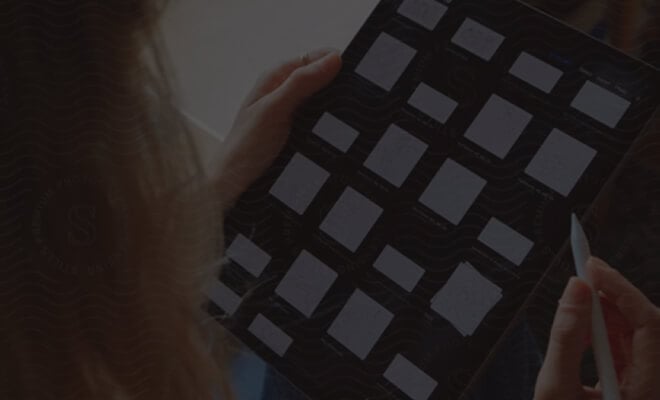Gaining Knowledge vs. Absorbing Knowledge
Table of contents

No time to read? Sit back and listen to this post.
Nutrient Workflow(opens in a new tab) · Gaining Knowledge Vs. Absorbing Knowledge Audio(opens in a new tab)
There’s a strong argument to be made for the statement “we’re living in the age of information overload.” For example, according to one study (outlined in a New York Times article(opens in a new tab)) in 2011, Americans take in approximately 174 newspapers’ worth of information every day—a five-fold increase from 1986. And according to another study from USC(opens in a new tab), the average person consumes a whopping 15.5 hours of media each and every day.
There is, however, a plus side to all that information; the more information you’re exposed to, the more opportunities there are to turn that information into knowledge.
But being exposed to new information isn’t enough to commit it to memory. So, the question is, how can you make the transition from gaining new knowledge to actually absorbing that knowledge—and being able to not only remember it, but use it to become your most successful, productive self?
What’s the difference between gaining knowledge and absorbing knowledge?
First things first—before we jump into how to make the shift from gaining knowledge to absorbing knowledge, let’s quickly touch on what, exactly, the difference is between the two.
Whenever you’re exposed to new information, you’re gaining knowledge. For example, let’s say you attend a work seminar on how to increase productivity. That’s knowledge gained; as a result of the conversation, you’re aware of new information (or knowledge) you weren’t aware of before you attended the seminar.
Now, fast forward a month. Can you remember the tips and tricks you learned during the seminar? Are you actively applying them to your daily workflow to increase productivity? If the answer is no, you may have initially gained the knowledge through your conv—but you didn’t absorb it.
Absorbing knowledge means not just learning something new, but committing it to memory and being able to recall and apply it to future situations—for example, recalling a tip you learned during your seminar and applying it to a time-consuming project to increase productivity.
Or, in other words, if gaining knowledge is about being exposed to new information, absorbing knowledge is about integrating that information—and being able to remember and apply it when necessary.
So, the question is, how do you make the shift from gaining knowledge to absorbing it?
Learn over time
If you want to absorb knowledge, you have to make a conscious effort to absorb it. And the best effort you can make? Give yourself time to absorb that knowledge.
According to research(opens in a new tab), processing information over extended periods of time leads to higher retention than trying to process that information all at once—also known as “the spacing effect.”
So, for example, let’s say you have to give a presentation to your executives on your sales team’s performance—a presentation that includes a lot of data and numbers. You’re far more likely to actually absorb the knowledge you need (and be able to recall and share key points during your presentation) if you go through the data sets multiple times in the weeks leading up to the presentation—instead of trying to memorize all the numbers in one big cram-session the day before you present to your executive team.
Bottom line? If you want to commit new information to memory—and make the leap from gaining information to absorbing information—revisit that information regularly and over time. The more often you revisit the information (and the more often you revisit it over time), the better you’ll absorb it.
Eliminate distractions and focus on learning
If you want to absorb knowledge, there’s one thing you absolutely need to stop doing—and that’s multitasking.
Not only does multitasking cause productivity and efficiency to take a nosedive(opens in a new tab), but it can also negatively impact memory-making absorbing knowledge nearly impossible. For example, research(opens in a new tab) has found that media multitasking (for example, listening to music while writing a report or scrolling through email while sitting in on a conference call) can impact both working memory (the ability to hold and use information in real-time) and long-term memory (the ability to retrieve information).
So, if you want to make the shift from gaining knowledge to actually absorbing it, stop multitasking. For example, if you’re reading an article—and want to absorb the knowledge within that article—don’t take a break to respond to a text message when you’re halfway through the piece. If you want to absorb the knowledge a friend or co-worker is sharing during a phone conversation, don’t check your email while they’re talking. The more you focus—and the less you spread your attention across multiple tasks—the more likely it is that you’ll actually absorb whatever information you’re receiving.
Pass on the knowledge torch
As mentioned, absorbing knowledge requires a conscious effort. And while regularly revisiting the knowledge you’re trying to absorb is great, try passing on the knowledge torch—and share that knowledge with someone else.
According to the Learning Pyramid Model(opens in a new tab), the average person retains a whopping 90 percent of the information they learn when they teach that information to others. That’s because teaching something to someone else requires you to more deeply engage with the information; you have to really understand the knowledge before you can teach it to another person—which can help you better absorb it.
So, for example, did your co-worker teach you a new sales strategy that you really want to remember—and integrate into your future sales pitches? Offer to demonstrate the strategy to more junior salespeople. The act of teaching will help solidify the knowledge in your mind—and help you absorb it for the long term.
Level up and start absorbing knowledge—not just gaining it
In today’s information-heavy age, we’re gaining new knowledge all the time. But if you want that knowledge to positively impact your work and your life, you need to do more than just gain it; you have to absorb it. And now that you have the strategies you need to make the leap from gaining to absorbing knowledge, all that’s left to do? Put those strategies into action—and watch your ability to absorb information, facts, and knowledge increase in the process.







